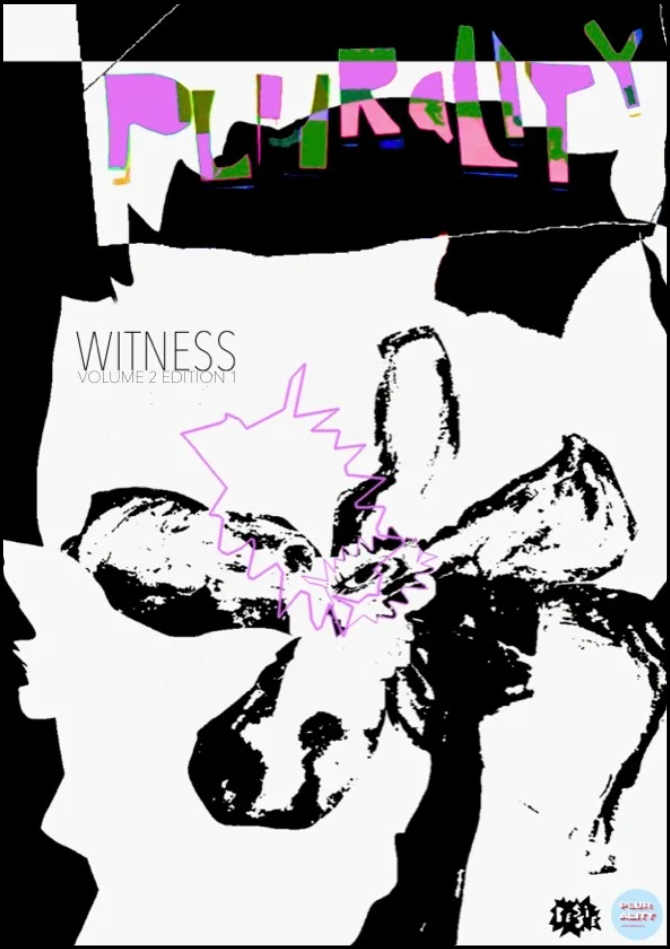“I Ran to the Comments”: Social Media Culture, Hate-Speech, and Hyperreality
DOI:
https://doi.org/10.2218/plurality.10622Abstract
While social media has allowed our world to become more interconnected and informed on global issues than ever. It has also aroused much criticism in the way it facilitates unrestricted hate-speech and violent rhetoric, especially towards historically oppressed groups. While the abundance of hate-speech online may be credited to the facelessness facilitated by internet profiles that negates accountability, this essay argues that there is a more cognitive and deeper explanation for how people are able to engage so violently with one another online. It will explain this through the framework of Baudrillard’s “Simulacra and Simulation”, elaborating that this discourse on social media exists within a hyperreality in which people are trained to jump to comment in a discriminatory way as soon as they witness the existence of a represents historical traits of otherness. The essay situates this idea of otherness in literature concerning the social architecture of gender, race and sexuality. Due to this process of reproduction of information, people are able to comment so aggressively as they are not witnessing another human being but instead, through the hyperreality they are only witnessing an image of a historically category of other, and thus they do not authentically engage with what they see but instead play into the simulation.
References
Attiah, K. (2025) “I talked to Meta’s Black AI character. Here’s what she told me.” The Washington Post. January 8. Available at: https://www.washingtonpost.com/opinions/2025/01/08/meta-ai-bots-backlash-racist/ (Accessed 25 February 2025)
Allan, K. and Daynes, S. (2017) Explorations in classical sociological theory: Seeing the social world (Fourth edition). Los Angeles: Sage.
Anthonypert (2024) TikTok. Available at: (Accessed 19 December 2024)
Avaminaa (2024) TikTok. Available at: (Accessed 19 December 2024)
Baudrillard, J. and Lotringer, S. (1987) Forget Foucault : & Forget Baudrillard ; an interview with Sylvère Lotringer. New York: Semiotexte.
Baudrillard, J. (1994) Simulacra and Simulation. trans Glaser, S. Ann Arbor: University of Michigan Press.
Beauvoir, S. (2015). The second sex. ed. and trans. Borde. C. and Malovany-Chevallier, S. London: Vintage Books.
Camfant (2024) TikTok. Available at: (Accessed 19 December 2024)
Castaño-Pulgarín, S.A. Suárez-Betancur, N. Vega, L.M.T. and López, H.M.H. (2021) “Internet, social media and online hate speech”. Systematic review. Aggression and violent behavior. 58, p.101608. Available at: https://www.sciencedirect.com/science/article/pii/S1359178921000628
Ciaunica, A., McEllin, L., Kiverstein, J. et al. (2022) “Zoomed out: digital media use and depersonalization experiences during the COVID-19 lockdown”. Scientific Reports. 12 (3888) Available at: https://doi.org/10.1038/s41598-022-07657-8
Crenshaw, K. (1989) “Demarginalizing the intersection of race and sex: A black feminist critique of antidiscrimination doctrine, feminist theory and antiracist politics”. University of Chicago Legal Forum, 1989(1), pp.139–167. Available at: https://philpapers.org/archive/CREDTI.pdf
Favoreden (2024) TikTok. Available at: https://vm.tiktok.com/ZNdJSRweu/
Flam, C. (2024) “Mean Girls Star Avantika Has Not Been Cast as Rapunzel in a Live-Action Tangled Despite Racist Backlash She's Receiving” People. April 10. Available at: https://people.com/avantika-receives-racist-backlash-after-fake-report-of-rapunzel-casting-8629291 (Accessed 22 November 2024)
Foucault, M. (1978) The will to knowledge : the history of sexuality. trans. Hurley, R. London: Penguin.
Gonzales, A. L. (2017). “Disadvantaged Minorities’ Use of the Internet to Expand Their Social Networks”. Communication Research. 44(4), pp. 467-486. Available at: https://doi.org/10.1177/0093650214565925
González-Esteban, J. Lopez-Rico, C. Morales-Pino, L. and Sabater-Quinto, F. (2024) “Intensification of Hate Speech, Based on the Conversation Generated on TikTok during the Escalation of the War in the Middle East in 2023”. Social Sciences. 13(1), pp.49-65. Available at: https://doi.org/10.3390/socsci13010049
Johnson, J. L. Bottorff, J. L. Browne, A. J. Grewal, S. Hilton, B. A. and Clarke, H. (2004). “Othering and Being Othered in the Context of Health Care Services”. Health Communication, 16(2), pp. 255–271. Available at: https://doi.org/10.1207/S15327027HC1602_7
Kamiński, M., Wieczorek, T., Kręgielska-Narożna, M. and Bogdański, P., (2024). “Tweeting about fatphobia and body shaming: a retrospective infodemiological study”. Nutrition, p.112497. Available at: https://www.sciencedirect.com/science/article/pii/S0899900724001461
Le, H., 2020. “Blasé attitude, hyperreality, and social media”. Crossing Borders: Student Reflections on Global Social Issues, 2(1). Available at: https://doi.org/10.31542/cb.v2i1.1990
Llorent, V.J. Ortega-Ruiz, R. and Zych, I. (2016) “Bullying and cyberbullying in minorities: Are they more vulnerable than the majority group?”. Frontiers in psychology, 7, p.1507. Available at: https://www.frontiersin.org/journals/psychology/articles/10.3389/fpsyg.2016.01507/full
Lugones, M. (2007) “Heterosexualism and the Colonial/Modern Gender System” Hypatia. 22(1) pp. 186-209. http://www.jstor.org/stable/4640051
Mondal, M. Araújo Silva, L. and Benevenuto, F. (2017). “A Measurement Study of Hate Speech in Social Media”. In Proceedings of the 28th ACM Conference on Hypertext and Social Media (HT '17). Association for Computing Machinery, pp, 85–94. Available at: https://doi.org/10.1145/3078714.3078723
Niki_patton (2020) TikTok. Available at: https://vm.tiktok.com/ZGdNVVHEJ/ (Accessed 9 November 2024)
Oyěwùmí, O. (1997) The Invention of Women: Making an African Sense of Western Gender
Discourses. Minneapolis: University of Minnesota Press.
Pradhana, G.A. and Tania, S. (2021). “Hyperreality of #blacklivesmatter movement on social media”. Jurnal Komunikasi: Malaysian Journal of Communication. 37(3), pp.288-303. Available at: https://journalarticle.ukm.my/18660/1/51275-168096-1-PB.pdf
Romaine, J. (2021) “New report says Big Tech algorithms promote hate speech” Changing America. May 14. Available at: https://thehill.com/changing-america/respect/diversity-inclusion/553535-new-report-says-big-tech-algorithms-promote-hate/ (Accessed 9 November 2024)
Said, E. W. (1978) Orientalism. London: Routledge and K. Paul.
Strings, S. (2019) Fearing the Black Body : The Racial Origins of Fat Phobia. New York: New York University Press.
Wolfe, P. (2016) Traces of History : Elementary Structures of Race. London: Verso. Available at: https://ebookcentral.proquest.com/lib/ed/reader.action?docID=5177293#
Downloads
Published
Issue
Section
License
Copyright (c) 2025 Ruby Scott

This work is licensed under a Creative Commons Attribution-NonCommercial-ShareAlike 4.0 International License.





